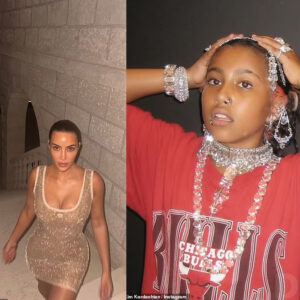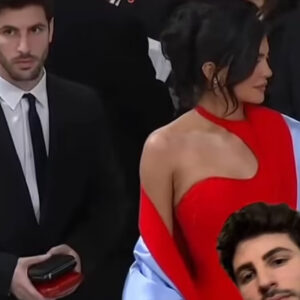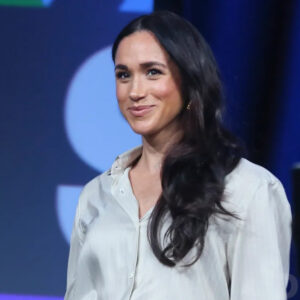Jennifer Lawrence’s ‘No Hard Feelings’ leads a raft of R-rated theatrical bets as studios look for fare that will stand out to moviegoers: “A difficult thing to do.”

From left: R-rated comedies ‘Joy Ride,’ ‘Strays’ and ‘No Hard Feelings’ hope to be viable at the box office this summer. ED ARAQUEL/LIONSGATE; MACALL POLAY/SONY PICTURES; CHUCK ZLOTNICK/UNIVERSAL PICTURES
The first trailer for Sony’s sex comedy No Hard Feelings, hitting theaters June 23, includes star Jennifer Lawrence consoling an ex by declaring she hasn’t forgotten him: “Last night, I thought, ‘I miss that fucker.’ ” Moviegoers might share similar nostalgia, recalling a not-long-ago era when studio offerings centering on ribald jokes would regularly play theatrically — before going missing. This summer suggests a possible changing of the tide. As audiences return to cinemas post-pandemic, studios appear to be using the next few months as a testing ground for the theatrical return of the R-rated comedy. No Hard Feelings, about an awkward teen whose parents hire Lawrence’s character to date him, will later have company from Lionsgate’s Joy Ride (July 7), Universal’s Strays (Aug. 18) and MGM’s Bottoms (Aug. 25). Such projects are akin to horror films in offering viewers the experience of watching shocking moments with a group of like-minded strangers. But unlike the horror genre, it’s been a while since raunchy comedy fans have had a headline-grabbing theatrical title to rally around.
Related Stories

Idris Elba to Star in, Direct Lionsgate’s Survival Thriller ‘Above the Below’ (Exclusive)

Box Office: ‘Hunger Games’ Prequel Opens to Subdued $44M, ‘The Marvels’ Suffers Historic Drop
“It is absolutely not an easy genre,” Universal president of domestic theatrical distribution Jim Orr tells The Hollywood Reporter of raunchy comedies. “We still think it’s an important genre. We still think it’s something that makes sense theatrically — but a difficult thing to do.”After touching the zeitgeist in the late ‘90s with There’s Something About Mary and American Pie, bawdy comedy thrived in the ensuing decade (think 40-Year-Old Virgin, Wedding Crashers, Superbad). But while later hits like The Hangover (2009), Bridesmaids (2011), Ted (2012) and 22 Jump Street (2014) all ranked among the top 15 highest-grossing titles domestically of their respective years, viewers seeking big laughs, bad words and horny leads in recent years have had to largely rely on catching streaming-service offerings from the couch.

‘No Hard Feelings’ SONY PICTURES ENTERTAINMENT
Just as Disney’s decision to release Pixar titles directly to Disney+ may have impacted viewer habits en route to Elemental’s disappointing box office debut, No Hard Feelings has been tracking for an opening bow of near $12 million, meaning it will need legs to be a hit. A typical selling point for comedies is the low budget, but this one was pricey, with Lawrence said to have been looking for a $25 million payday when Sony outbid streamers in 2021.
Among the R-rated comedies to land on streaming platforms in lieu of theaters since 2022 include Netflix’s Rebel Wilson vehicle Senior Year, Kevin Hart-starring Me Time and Eddie Murphy-fronted You People, the latter leading the way among these titles with 3.86 billion viewing minutes and four weeks logged in the streamer’s top 10, per Nielsen.“Lots of genres have disappeared when they’re made so aggressively in a streaming space,” says Sony Pictures Motion Picture Group president Sanford Panitch. “The studios aren’t going to make Christmas comedies if there are six Christmas comedies on a streaming platform. So it’s partly about finding the spaces that are theatrical, and not feeling that there’s something that someone can get at home for free.”

‘Joy Ride’ COURTESY OF SXSW/ED ARAQUEL LIONSGATE
For filmmakers, knowing what lifts a project in the comedy space remains as elusive as the genre looks to snap this lull. “The message I’m getting from studio execs is they want big event comedies and racy R-rated comedies that people will talk about,” says Tracy Oliver, the scribe behind Lionsgate’s horror-comedy The Blackening — which opened to $7 million over the Juneteenth holiday — who also wrote 2017’s popular Girls Trip and is working on its sequel. “Movies like Girls Trip 2 and The Blackening pass the litmus test for theatrical because they are considered event comedies that are meant to be enjoyed in big groups.”While streaming may offer ease for consumers, creatives across the board covet a theatrical release. Such was the case for screenwriter Dan Perrault — whose live-action Strays follows a dog voiced by Will Ferrell seeking revenge against his negligent owner — and Cherry Chevapravatdumrong, Teresa Hsiao and Adele Lim, the writers behind Joy Ride, about a woman traveling across China to find her birth mother. (“Huge, high priority — absolute goal,” Chevapravatdumrong says of it playing in theaters.)
“There does seem to be some idea of, ‘Let’s release these $15 million comedies on streaming instead of at the theater,’” says LP, director of 2020 Netflix comedy Desperados. She praises the platform’s support of the film, which was set up at Universal before she was attached, but acknowledges that having a movie in theaters “would be a dream.” That said, the helmer notes that going to theaters could bring pressure around the opening weekend and quips about her movie’s memorable set piece: “Does the dolphin penis stay if you’re going to the theater? Maybe not.”

‘Strays’ COURTESY OF UNIVERSAL
One cultural change over the past decade is the way in which the depiction and discussion of sexuality has evolved, due in part to the #MeToo movement. But filmmakers and execs alike assert that this hasn’t impacted the risk-taking involved in making such comedies, and indeed, the trailer for No Hard Feelings includes nudity, seduction and double entendre galore. “We had a deal with Seth [Rogen] and Evan [Goldberg] for a while, and some of these movies go slightly past the point where it feels comfortable — and that’s where the laughter is,” recalls Panitch. “When everybody sees something that is really funny, you know it.” Perrault concurs: “I haven’t experienced any difficulty with [it]. The biggest thing that I don’t think audiences want any part of anymore is mean-spiritedness.”Studios aren’t alone in monitoring audience interest for this summer’s options. “Joy Ride is going to be a very good test, and if it’s successful, then people will be like, ‘Oh, my God, big comedy is back,’” says Girls Trip director Malcolm D. Lee. “Everyone is risk-averse, particularly with theatrical, so it’s going to be very interesting to see what happens.”
Another factor is that the Peak TV era has lured studios into making series out of ideas that might have previously earned feature treatment. Take Ted, which collected a whopping $218 million domestically in 2012 ($289 million today, adjusted for inflation) before a 2015 sequel underperformed; a prequel series is soon heading to Peacock. Filmmaker Nick Stoller (Neighbors) places his new Apple TV+ show Platonic, starring Seth Rogen and Rose Byrne, in a similar category and says of the show’s team, “We would talk about how a version of this would have been a movie 10 years ago, but it’s easier to just do this on the small screen.”Filmmakers stress that theatrical is important for the life span of a feature, particularly a comedy. “If I was in charge of the studios, I would put all my comedy money behind R-rated comedies,” says Paul Feig (Bridesmaids, The Heat). While Feig’s more recent projects, including last year’s The School for Good and Evil for Netflix, have veered away from the space, he soon returns with R-rated Grand Death Lotto, eyeing a 2024 release. It hails from Amazon Studios, but Feig sees the possibility of theatrical release as one of the pluses of working with the company, which recently debuted Air in theaters: “I’m pushing very, very hard to get a theatrical release for this because it’s a group experience.”Jeremy Garelick, who worked on the script for The Hangover and has directed films including Netflix’s recent Adam Sandler offering Murder Mystery 2, is so confident in the R-rated teen comedy genre that he launched production company American High, which acquired a high school in Syracuse, New York, to use for shooting inexpensive films. Garelick, who worked at CAA when the original American Pie script was passed around, is betting that pop culture follows a roughly 20-year cycle as adolescents grow up to become the new gatekeepers. He offers of teen sex films, “It’s going to come back — it’s just a matter of time.” In Hollywood’s increasingly IP-driven era, the studio risk-taking required to support original comedy ideas has waned, although the superhero craze shows signs of audience fatigue. One franchise readying its anticipated return is Ryan Reynolds’ Deadpool films, which have managed to successfully infuse high-octane action with F-bombs and penis jokes.“When I saw Deadpool, I was like, ‘Fucking I should have made this movie,’” admits Kevin Smith, the Clerks director and comic book fanatic who has more recently eschewed the studio system and followed a model that involves taking his films on a nationwide theatrical tour. He praises Fox for initially taking a chance with the boundary-pushing Deadpool: “The studio wasn’t initially interested in doing that, and then they did and were rewarded for going out on the edge.”But, as Jordan VanDina, director of Hulu’s It’s a Wonderful Binge and writer of Dodgeball 2, notes, “I think all it will take is one high-grossing R-rated comedy in theaters to bring in a whole new slate of irreverent theatrical comedies.” As for the studios, eyes are on No Hard Feelings and Strays, even if either failing to connect won’t mean that likeminded projects necessarily get put to sleep. “The genre is certainly not dependent on these next two films,” Orr says. “But you always see patterns in the box office and imitation when you find out what works.”
News
Kim Kardashian credits North West, 10, for taking her sultry vacation pictures in Turks and Caicos
Kim Kardashian revealed her daughter North West, 10, was responsible for snapping her latest travel pictures from their tropical getaway to Turks and Caicos last week. While sharing a slew of envy-inducing…
EXCLUSIVE: Hunky Italian model says he’s been fired from working as greeter at Met Gala after his good looks upstaged Kylie Jenner during last year’s ceremony
An Italian model has revealed he’s been fired from working at this year’s Met Gala because his rugged good looks upstaged stars including Kylie Jenner. Eugenio Casnighi, 26, who…
‘Greedy’ Meghan Markle is ‘being laughed out of Hollywood’ by A-listers: source
Meghan Markle might be one of the most famous women on the planet — but Hollywood power players are purportedly less than impressed with her showbiz prowess….
Rihanna And ASAP Rocky: A Timeline Of Their Relationship
In 2020, it was reported that Rihanna and ASAP (or A$AP) Rocky had turned their friendship up a notch, elevating them to couple status. Following in the…
King Charles and Princess Kate’s Very Different Reactions to Cancer News
The royal family’s current health battles have “forced them to really think about what matters,” with King Charles III and Princess Kate channeling their focuses in two very different directions, Newsweek‘s chief…
A$AP Rocky Beats Rihanna While Trying To Protect His Side Chick From RiRi…
In a recent turn of events, A$AP Rocky finds himself making headlines not for his music but for his unexpected clash with Rihanna. The rapper, known for…
End of content
No more pages to load
Relative Articles
None found






